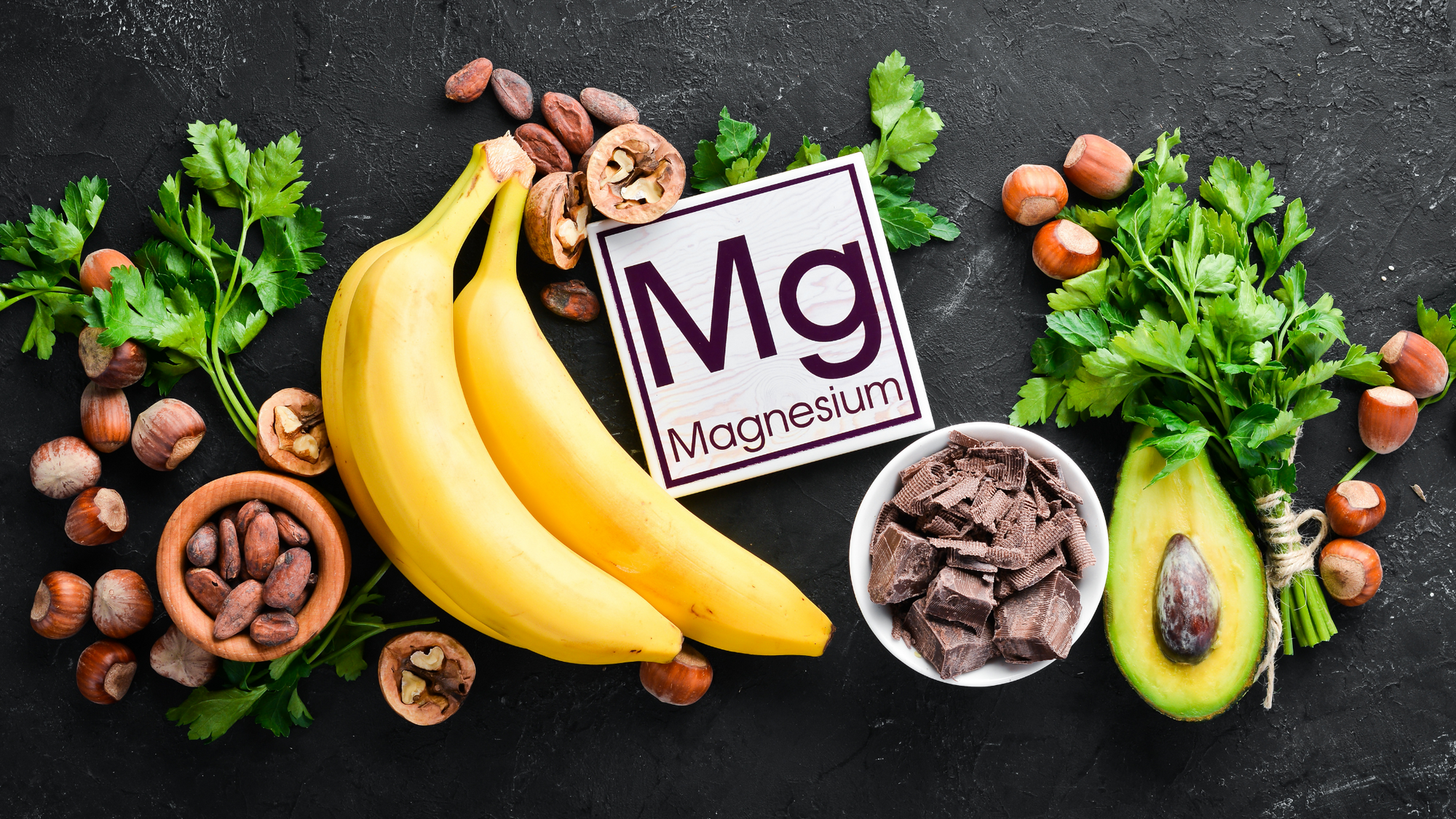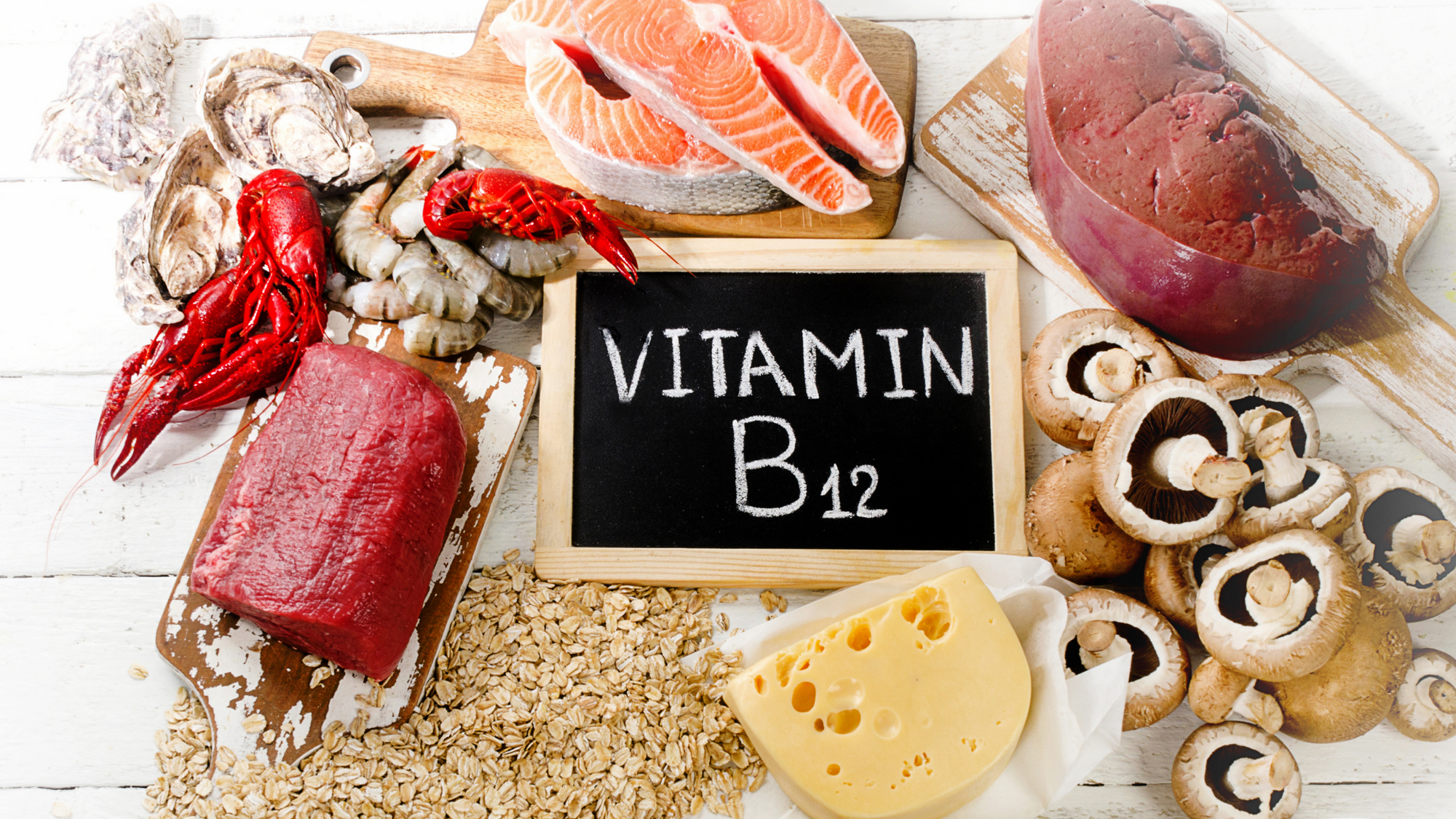Vegan diets are on trend. Animal welfare, climate protection and health are often cited as motivations for a vegan diet.
A vegan diet is considered healthy because it is rich in vegetables, fruits, nuts and seeds. But can a vegan diet really provide all the essential nutrients ?
In this article you will learn which nutrients are difficult to cover with a vegan diet.
IT'S WORTH READING!
AT THE END OF THE ARTICLE WE WOULD LIKE TO GIVE YOU A LITTLE JOY WITH A VOUCHER!

-
Vitamin B12
Vitamin B12 is important for cell division and blood formation. Our brain and nerve cells also need vitamin B12. 1
Unfortunately, this vitamin is only found in significant quantities in animal foods. Vegans therefore have to supplement vitamin B12 . 2
Since vitamin B12 is important for the nerves, a deficiency is quite dangerous. Nerve cells have difficulty regenerating and in the worst case, a vitamin B12 deficiency can cause irreversible nerve damage.
For this reason, it is important to detect a vitamin B12 deficiency before symptoms become noticeable. Since a good supply of vitamin B12 is so critical, we have large vitamin B12 stores. The liver can store around 2,000 - 5,000 ug of vitamin B12. Since the daily requirement is around 4 ug, well-filled stores can last for several years. 3
-
Omega-3 fatty acids
Omega-3 fatty acids have anti-inflammatory effects and are part of cell membranes. They are important for brain function and support heart health. 4
Omega-3 fatty acids are found in both animal and plant foods. However, not all omega-3s are created equal. Most plant foods such as linseed oil, chia seeds and walnut oil only contain alpha-linolenic acid (ALA). However, the body also needs the omega-3 fatty acids eicosapentaenoic acid (EPA) and docosahexaenoic acid (DHA), which are almost only found in fish and seafood. 5 There is one exception, however: algae oil is a vegan source of omega-3s that contains plenty of EPA and DHA in a favorable ratio of 1:3.
Vegans are therefore strongly advised to supplement Omega-3 in the form of algae oil .
-
Creatine
Creatine has important functions in energy metabolism and can support muscle building. A large part of the creatine in the body (approx. 95%) is stored in the muscles. 6
Creatine is found primarily in meat and fish. Milk and dairy products are also good sources of creatine. The amounts found in fruit and vegetables are negligible.
However, the body can also produce creatine itself. To do this, it needs the amino acids methionine, arginine and glycine. 7
Arginine and glycine are found in abundance in both plant and animal protein sources. Methionine is also found in plant protein, but in much larger quantities in animal protein. Vegans and vegetarians have significantly less creatine in their muscles than omnivores. 8
-
Vitamin D
Vitamin D is important for bones and muscles. It also has important functions in the immune system and is needed for cell division. 9
Strictly speaking, vitamin D is a hormone that the body can produce itself when it comes into contact with sunlight. Vitamin D is also found in small amounts in some foods such as fish, meat and eggs. 10
Unfortunately, vitamin D deficiency is very widespread in Germany. According to a study by the Robert Koch Institute, more than half of Germans do not have sufficient vitamin D. 11 A vitamin D supplement is therefore advisable, especially in winter.

-
Zinc
Zinc is best known for its function in the immune system. Zinc is also important for wound healing and promotes skin and hair health. 12
Oysters and liver are the best sources of zinc. Nuts, seeds, cocoa and wild rice also contain plenty of zinc. 13 There is a problem here, however: these foods contain phytic acid, which binds zinc and thus hinders its absorption. For this reason, zinc requirements depend on the phytic acid content of the food. If phytate intake is low, the daily requirement is around 7-11 mg, and if phytate intake is high, it is 10-16 mg. 14
Since vegans mostly eat foods that contain a lot of phytic acid, they have an increased risk of zinc deficiency.
-
Vitamin K2
Vitamin K is especially important for blood clotting and bone maintenance. 15 Vitamin K is a group of vitamins.
A distinction is made between vitamin K1 and vitamin K2. Vitamin K1 is found in plant-based foods, while vitamin K2 is found in animal-based foods and fermented vegetables. 16 The body can convert vitamin K1 into K2, but the conversion rate is very poor. 17 For this reason, it is important to consume not only vitamin K1 but also vitamin K2 through food.
Vegans should therefore either eat fermented foods regularly or supplement vitamin K2.
-
Iodine
Iodine is known to be important for the thyroid, as it is a component of thyroid hormones. However, iodine has many other functions. For example, it is important for cognitive performance and for the nerves. 18
Iodine is mainly found in iodized table salt. However, this alone is not enough to meet the need. Other sources of iodine are fish, dairy products and eggs. Iodine is rarely found in plant-based foods in significant quantities. There is one exception, however: algae, such as nori algae, are very rich in iodine. 19
Iodine deficiency is very common in Germany: 30% of adults and 44% of children do not consume enough iodine. 20 Vegans must be particularly careful to consume iodine in the form of algae or as a dietary supplement.
-
Selenium
Selenium is important for the function of the thyroid gland and protects cells from oxidative stress. It is also needed for the immune system and helps maintain hair and nails. 21
Selenium is found primarily in fish and seafood. The best source of selenium by far is actually Brazil nuts. However, Brazil nuts are radioactive. For this reason, you should not eat them in large quantities. But seeds such as sunflower seeds are also good sources of selenium. 22
Germany has very selenium-poor soils and is therefore considered a selenium-deficient area. It is possible to meet selenium requirements with a vegan diet. However, since fish and seafood are no longer important sources of selenium, this is more difficult than with a mixed diet.
-
Iron
Iron is needed for the transport of oxygen in the blood. It is also important for blood formation and has important functions in energy metabolism. 23
Iron is found in both animal and plant foods. However, only animal foods contain heme iron, which the body can use better. 24 Cocoa, nuts, seeds, meat and fish are good sources of iron. 25 Combining it with vitamin C can improve the absorption of iron. 26
Especially if you have an increased need for iron, a vegan diet can easily lead to an iron deficiency. There is an increased need especially in menstruating women, during pregnancy and while breastfeeding .

-
Essential amino acids
Amino acids are the building blocks of proteins. Proteins fulfill countless functions in the body: They have structural functions and give cells support and structure. They also serve as signaling molecules and are involved in many biochemical reactions.
There are 21 different amino acids and a distinction is made between essential and non-essential amino acids. The body can produce 27 non-essential amino acids itself, but we must consume essential amino acids in sufficient quantities through food.
Essential amino acids are found in both animal and plant foods. However, there is one important difference: Animal protein sources contain all 8 essential amino acids in generous amounts. Some plant protein sources contain some of the essential amino acids, while others do not.
Rice, for example, is rich in the amino acids cysteine and methionine, while peas contain a lot of lysine. 28 , 29
To ensure a good supply of essential amino acids, vegans should cover their protein needs from many different plant-based protein sources. When supplementing with vegan protein powder, they should make sure that it is a multi-component powder with protein from different sources.
-
Calcium
Calcium is important for bone and muscle function. Calcium also plays an important role in cell division and energy metabolism. 30
Cheese is by far the best source of calcium. But nuts, seeds and fish are also good sources of calcium. Green leafy vegetables also contain calcium, but comparatively little. 31
Calcium requirements can be met with a balanced, vegan diet. However, since cheese is no longer an important source of calcium, this is much more difficult than with a mixed diet.

Conclusion: Many nutrients are easily lacking in a vegan diet
A vegan diet can be healthy and rich in nutrients. However, there are some nutrients that are easily lacking in a vegan diet. These include vitamin B12 and omega-3 fatty acids in particular. For other nutrients such as iron, vitamin K2, calcium, zinc, iodine, selenium and essential amino acids, a conscious choice of foods is necessary to avoid a deficiency .
AS PROMISED, YOU WILL RECEIVE A 10% VOUCHER ON OUR VITAMIN B12 , OMEGA-3 , VITAMIN D3 / K2 liquid , VITAMIN D3 / K2 capsules , zinc , iodine from organic kelp , Amino-8 , calcium and selenium tablets .
JUST COPY THE CODE VEGAN+V10 AND ENTER IT AT CHECKOUT.
Click here to shop
8 https://journals.lww.com/acsm-msse/Fulltext/2003/11000/Effect_of_Creatine_and_Weight_Training_on_Muscle.25.aspx
19 https://www.ars.usda.gov/northeast-area/beltsville-md-bhnrc/beltsville-human-nutrition-research-center/methods-and-application-of-food-composition-laboratory/mafcl-site -pages/iodine/

















